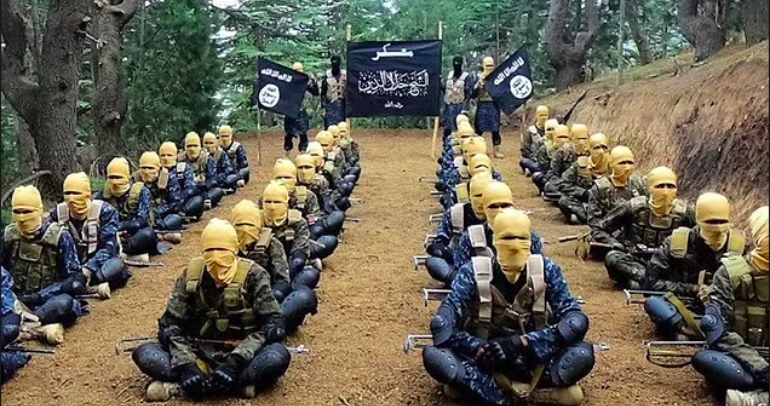The suicide bombings at the Kabul airport are almost certainly the work of the Islamic State’s “Khorasan Province” (ISKP), the branch of the organisation in Afghanistan and Pakistan that was officially recognised by Islamic State (ISIS) “Centre” in 2015. The group had been oddly quiet since the fall of Kabul, and we can now see why.
A lot of official commentary from the U.S. government and analytical work influenced by this has written off ISKP over the last few years after a series of Taliban offensives against the group. The reality was that ISKP had withdrawn from overt view and was recuperating and waiting, particularly for the prison breaks it knew would accompany a Taliban conquest of the country.
These intra-jihadi clashes became a part of the political narrative because they occurred in tandem with the so-called peace process, which excluded the Afghan government, and forced the release of thousands of jihadists, fatally wounding the Afghan state. The “process”, a cover for American withdrawal, required legitimising the Taliban, and at senior levels in both the Trump administration and the Biden administration. One way this was done was to claim the Taliban could be a counter-terrorism partner, certainly against ISKP and even against Al-Qaeda.
The Taliban cannot fight Al-Qaeda. Al-Qaeda has sworn an oath of allegiance to the Taliban leader, and on the battlefield they are completely intertwined. One of the most visible Taliban leaders in Kabul has been Khalil Haqqani, who is a senior operative in the Haqqani Network. This network is deeply woven into Al-Qaeda’s presence in Afghanistan and has leaders simultaneously holding senior positions in the Taliban. These organisational overlaps are reinforced by family ties. In short, there is no real-world distinction between the Taliban and Al-Qaeda.
There is a distinction between the Taliban and ISKP, and indeed a venomous hatred. But what is clear from the attack at the airport is that either the Taliban was complicit — allowing attacks that will halt an evacuation that they oppose — or the Taliban was unable to stop it. In either case it is risible to suggest that the Taliban can assist in counter-terrorism.
At root, the distinction between ISKP and the Taliban is their nature: ISKP is a non-state actor and the Taliban is a wing of Pakistan’s (deep) state. The network of jihadists that has just taken over Afghanistan — led by the Taliban and the Haqqani Network — is just the latest iteration of Pakistan’s jihad project in Afghanistan, which began no later than 1974. The ISI has recruited, trained, armed, funded, and often led the Islamist militants in Afghanistan in order to create a colonial dependency because the ISI believes it is in a civilisational war with India. And unless Pakistan controls Afghanistan, India will, and this will “encircle” Pakistan.
In the twenty years we have been in Afghanistan, despite the work of scholars like Christine Fair and Hussain Haqqani and journalists like Carlotta Gall, the Pakistan “dimension” has remained under-emphasised in the media and public discussion. Indeed, even in recent days reputable publications like the Financial Times have printed outright ISI propaganda. There are signs of this being corrected, and it is very helpful that officials like former SIS/MI6 director Sir Richard Dearlove are speaking out.
It is too late to save Afghanistan, but at least it might set us — at long last — on a better policy track in dealing with Pakistan as it is: a state sponsor of terror that has killed thousands of our people and tens of thousands of Afghans.
Kyle Orton is an independent terrorism analyst. He tweets at @KyleWOrton










Join the discussion
Join like minded readers that support our journalism by becoming a paid subscriber
To join the discussion in the comments, become a paid subscriber.
Join like minded readers that support our journalism, read unlimited articles and enjoy other subscriber-only benefits.
Subscribe